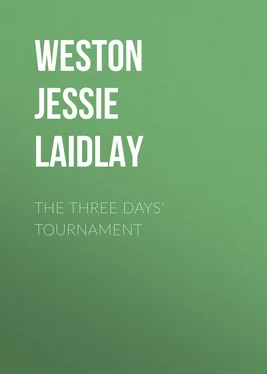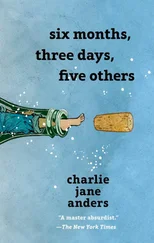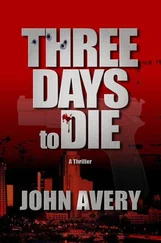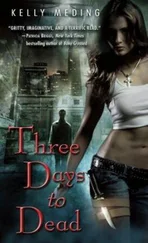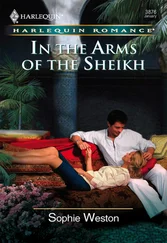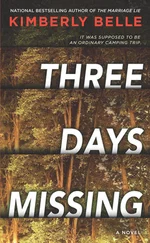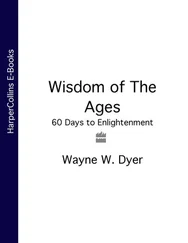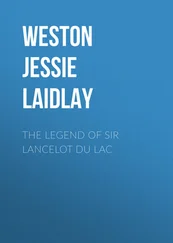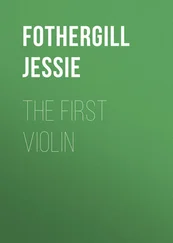Jessie Weston - The Three Days' Tournament
Здесь есть возможность читать онлайн «Jessie Weston - The Three Days' Tournament» — ознакомительный отрывок электронной книги совершенно бесплатно, а после прочтения отрывка купить полную версию. В некоторых случаях можно слушать аудио, скачать через торрент в формате fb2 и присутствует краткое содержание. Издательство: Иностранный паблик, Жанр: foreign_antique, Старинная литература, Мифы. Легенды. Эпос, на английском языке. Описание произведения, (предисловие) а так же отзывы посетителей доступны на портале библиотеки ЛибКат.
- Название:The Three Days' Tournament
- Автор:
- Издательство:Иностранный паблик
- Жанр:
- Год:неизвестен
- ISBN:нет данных
- Рейтинг книги:3 / 5. Голосов: 1
-
Избранное:Добавить в избранное
- Отзывы:
-
Ваша оценка:
- 60
- 1
- 2
- 3
- 4
- 5
The Three Days' Tournament: краткое содержание, описание и аннотация
Предлагаем к чтению аннотацию, описание, краткое содержание или предисловие (зависит от того, что написал сам автор книги «The Three Days' Tournament»). Если вы не нашли необходимую информацию о книге — напишите в комментариях, мы постараемся отыскать её.
The Three Days' Tournament — читать онлайн ознакомительный отрывок
Ниже представлен текст книги, разбитый по страницам. Система сохранения места последней прочитанной страницы, позволяет с удобством читать онлайн бесплатно книгу «The Three Days' Tournament», без необходимости каждый раз заново искать на чём Вы остановились. Поставьте закладку, и сможете в любой момент перейти на страницу, на которой закончили чтение.
Интервал:
Закладка:
Jessie L. Weston
The Three Days' Tournament / A Study in Romance and Folk-Lore. Being an Appendix to the / Author's 'Legend of Sir Lancelot'
PREFACE
The Study comprised in the following pages should, as the title indicates, be regarded as an Appendix to the Studies on the Lancelot Legend previously published in the Grimm Library Series. As will be seen, they not only deal with an adventure ascribed to that hero, but also provide additional arguments in support of the theory of romantic evolution there set forth. Should the earlier volume ever attain to the honour of a second edition, it will probably be found well to include this Study in the form of an additional chapter; but serious students of Arthurian romance are unfortunately not so large a body that the speedy exhaustion of an edition of any work dealing with the subject can be looked for, and, therefore, as the facts elucidated in the following pages are of considerable interest and importance to all concerned in the difficult task of investigating the sources of the Arthurian legend, it has been thought well to publish them without delay in their present form.
In the course of this Study I have, as opportunity afforded, expressed opinions on certain points upon which Arthurian scholars are at issue. Here in these few introductory words I should like, if possible, to make clear my own position with regard to the question of Arthurian criticism as a whole. I shall probably be deemed presumptuous when I say that, so far, I very much doubt whether we have any one clearly ascertained and established fact that will serve as a definite and solid basis for the construction of a working hypothesis as to the origin and development of this immense body of romance. We all of us have taken, and are taking, far too much for granted. We have but very few thoroughly reliable critical editions, based upon a comparative study of all the extant manuscripts. Failing a more general existence of such critical editions, it appears impossible to hope with any prospect of success to ‘place’ the various romances. 1 1 Professor Foerster’s edition of the poems of Chrétien de Troyes are probably the most satisfactory critical texts we at present possess, but the value of these is greatly impaired by the controversial use made of the prefaces attached to them.
Further, it may be doubted if the true conditions of the problem, or problems, involved have even yet been adequately realised. The Arthurian cycle is not based, as is the Charlemagne cycle, upon a solid substratum of fact, which though modified for literary purposes is yet more or less capable of identification and rectification; such basis of historic fact as exists is extremely small, and for critical purposes may practically be restricted to certain definite borrowings from the early chronicles.
The great body of Arthurian romance took shape and form in the minds of a people reminiscent of past, hopeful of future, glory, who interwove with their dreams of the past, and their hopes for the future, the current beliefs of the present. To thoroughly understand, and to be able intelligently and helpfully to criticise the Arthurian Legend, it is essential that we do not allow ourselves to be led astray by what we may call the ‘accidents’ of the problem—the moulding into literary shape under French influence—but rather fix our attention upon the ‘essentials’—the radically Celtic and folk-lore character of the material of which it is composed.
We need, as it were, to place ourselves en rapport with the mind alike of the conquered and the conquerors. It is not easy to shake ourselves free from the traditions and methods of mere textual criticism and treat a question, which is after all more or less a question of scholarship, on a wider basis than such questions usually demand. Yet, unless I am much mistaken, this adherence to traditional methods, and consequent confusion between what is essential and what merely accidental, has operated disastrously in retarding the progress of Arthurian criticism; because we have failed to realise the true character of the material involved, we have fallen into the error of criticising Arthurian romance as if its beginnings synchronised more or less exactly with its appearance in literary form. A more scientific method will, I believe, before long force us to the conclusion that the majority of the stories existed in a fully developed, coherent, and what we may fairly call a romantic form for a considerable period before they found literary shape. We shall also, probably, find that in their gradual development they owed infinitely less to independent and individual imagination than they did to borrowings from that inexhaustible stock of tales in which all peoples of the world appear to have a common share.
Thus I believe that the first two lessons which the student of Arthurian romance should take to heart are ( a ) the extreme paucity of any definite critical result, ( b ) the extreme antiquity of much of the material with which we are dealing.
But there is also a third point as yet insufficiently realised—the historic factors of the problem. We hear a great deal of the undying hatred which is supposed to have existed between the Britons and their Saxon conquerors; the historical facts, such as they are, have been worked for all they are worth in the interests of a particular school of criticism; but so far attention has been but little directed to a series of at least equally remarkable historic facts—the deliberate attempts made to conciliate the conquered Britons by a dexterous political use of their national beliefs and aspirations.
In 1894, when publishing my first essay in Arthurian criticism, the translation of Wolfram von Eschenbach’s Parzival , I drew attention to the very curious Angevin allusions of that poem, and the definite parallels to be traced between the incidents of the story and those recorded in the genuine Angevin Chronicles. I then hazarded the suggestion that many of the peculiarities of this version might be accounted for by a desire on the part of the author to compliment the most noted prince of that house by drawing a parallel between the fortunes of Perceval and his mother, Herzeleide, and those of Henry of Anjou and his mother, the Empress Maude. Subsequent study has only confirmed the opinion then tentatively expressed; and I cannot but feel strongly that the average method of criticism, which contents itself merely with discussion of those portions of Wolfram’s poem which correspond to other versions of the Perceval story, while it neglects those sections ( i.e. the Angevin allusions and the Grail ‘Templars’) to which no parallel can be found elsewhere, is a method which entirely defeats its own object, and one from which only partial results can be obtained.
For critical purposes, and for determining certain central problems of the location and growth of the Arthurian Legend in literary form, I doubt whether the Parzival be not the most important extant text of the entire cycle: once realise—as if we thoroughly understand the historic conditions of the time we can scarcely fail to realise—that those two first introductory books could not possibly be written at the date of the composition of the German poem, and we shall then begin to recognise the extreme importance of discovering the when, where, and why of their original composition. Could we solve the riddle of the date and authorship of the earlier poem, that containing the Angevin allusions, the Grail Temple with its knights, and, we may add, the numerous Oriental references, we should, I believe, hold in our hand the master-key which would unlock the main problems confronting us. In all probability that unlocking when it comes will furnish us with more than one surprise.
Читать дальшеИнтервал:
Закладка:
Похожие книги на «The Three Days' Tournament»
Представляем Вашему вниманию похожие книги на «The Three Days' Tournament» списком для выбора. Мы отобрали схожую по названию и смыслу литературу в надежде предоставить читателям больше вариантов отыскать новые, интересные, ещё непрочитанные произведения.
Обсуждение, отзывы о книге «The Three Days' Tournament» и просто собственные мнения читателей. Оставьте ваши комментарии, напишите, что Вы думаете о произведении, его смысле или главных героях. Укажите что конкретно понравилось, а что нет, и почему Вы так считаете.
